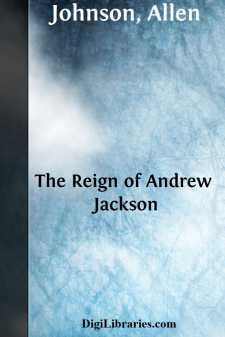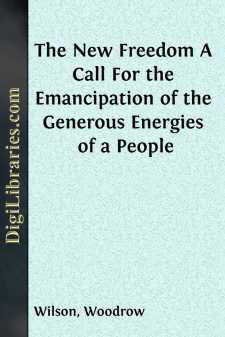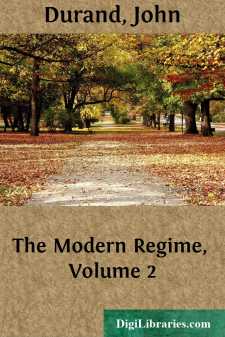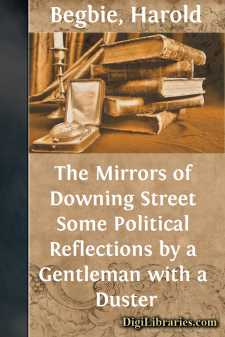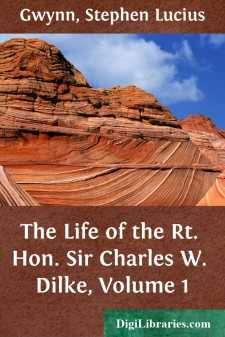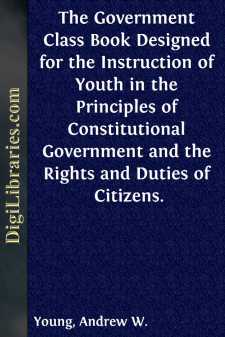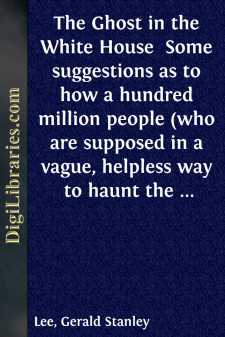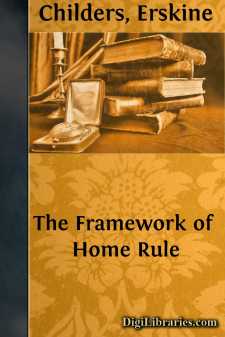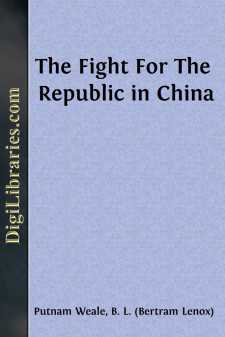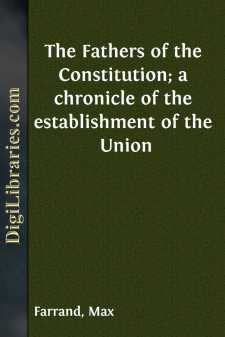Political Science
- Conspiracy & Scandal Investigations 1
- Constitutions 7
- Economic Conditions 10
- General 46
- Government 6
- History & Theory
- Peace 1
History & Theory Books
Sort by:
by:
Allen Johnson
CHAPTER I JACKSON THE FRONTIERSMAN Among the thousands of stout-hearted British subjects who decided to try their fortune in the Western World after the signing of the Peace of Paris in 1763 was one Andrew Jackson, a Scotch-Irish Presbyterian of the tenant class, sprung from a family long resident in or near the quaint town of Carrickfergus, on the northern coast of Ireland, close by the newer and more...
more...
by:
Woodrow Wilson
I There is one great basic fact which underlies all the questions that are discussed on the political platform at the present moment. That singular fact is that nothing is done in this country as it was done twenty years ago. We are in the presence of a new organization of society. Our life has broken away from the past. The life of America is not the life that it was twenty years ago; it is not the...
more...
by:
John Durand
PREFACE By André Chevrillon. "To treat of the Church, the School, and the Family, describe the modern milieu and note the facilities and obstacles which a society like our own encounters in this milieu, such was the program of the last section of the "Origins of Contemporary France." The preceding volume is a continuation of the first part of this program; after the commune and the...
more...
by:
Harold Begbie
INTRODUCTION Let me say that I hope I have not betrayed any confidences in these sketches. Public men must expect criticism, and no criticism is so good for them, and therefore for the State, as criticism of character; but their position is difficult, and they may justly complain when those to whom they have spoken in the candour of private conversation make use of such confidences for a public...
more...
PREFACE The following Life of Sir Charles W. Dilke consists mainly of his ownMemoirs and of correspondence left by him or furnished by his friends. The Memoirs were compiled by Sir Charles Dilke from his private diaries and letters between the years 1888 and his return to Parliament in 1892. The private diaries consisted of entries made daily at the dates dealt with. Of the Memoirs he says: "These...
more...
by:
Andrew W. Young
Chapter I. Mankind fitted for Society, and for Civil Government and Laws. §1. Mankind are social beings. They are by nature fitted for society. By this we mean that they are naturally disposed to associate with each other. Indeed, such is their nature, that they could not be happy without such association. Hence we conclude that the Creator has designed men for society. It can not, therefore, be true,...
more...
GIST The Crowd is my Hero. The Hero of this book is a hundred million people. I have come to have the feeling—especially in regard to political conventions, that it might not be amiss to put forward some suggestions just now as to how a hundred million people can strike—make themselves more substantial, more important in this country, so that we shall really have in this country in time a hundred...
more...
by:
Erskine Childers
INTRODUCTION My purpose in this volume is to advocate a definite scheme of self-government for Ireland. That task necessarily involves an historical as well as a constructive argument. It would be truer, perhaps, to say that the greater part of the constructive case for Home Rule must necessarily be historical. To postulate a vague acceptance of the principle of Home Rule, and to proceed at once to the...
more...
CHAPTER I GENERAL INTRODUCTION The revolution which broke out in China on the 10th October, 1911, and which was completed with the abdication of the Manchu Dynasty on the 12th February, 1912, though acclaimed as highly successful, was in its practical aspects something very different. With the proclamation of the Republic, the fiction of autocratic rule had truly enough vanished; yet the tradition...
more...
by:
Max Farrand
CHAPTER I. THE TREATY OF PEACE "The United States of America"! It was in the Declaration of Independence that this name was first and formally proclaimed to the world, and to maintain its verity the war of the Revolution was fought. Americans like to think that they were then assuming "among the Powers of the Earth the equal and independent Station to which the Laws of Nature and of...
more...


